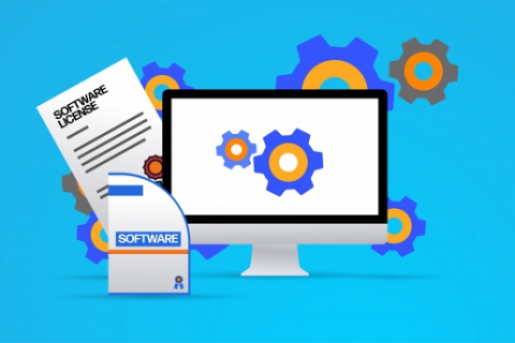A license agreement (license agreement) is an agreement made between the owner of a property, patent or trademark and another party who wants intends to make use of the property, patent or trademark, the license grants permission to the licensee under specific conditions. It transfers the rights to exclusively make use of the created or registered intellectual property.
Under a licensing agreement for the sale of software or computer game rights, the owner (licensor) grants permission to the licensee rights to make use of any intellectual property in a particular territory. The licensee, in turn, undertakes to fulfil some counter-obligations (for example, to deduct a specified monthly amount, perform the required actions, or refrain from such activities).


DRAFTING OF A SOFTWARE LICENSE AGREEMENT
We recommend that you seek the help of professionals when looking to create licensing agreements. When creating a license or distribution contract, in particular, it will be required to take into account to meet the following requirements, they include:
List:
List:
-
The subject of the deal, that is, the complete specification and individualization of the object of intellectual property, the right to share the transferred object is duly specified under the terms of the contract;
-
The condition on the amount of the counter-obligation (remuneration) and the stipulated procedure for its determination. If there is no such condition, then the created license agreement is considered not valid by either party.
-
The complete designation of permitted uses of intellectual property, as the licensee is entitled to use the transferred intellectual property exclusively to the extent and ways provided for by the established license agreement.
-
The validity of the license agreement depends on the conditions of each given territory, this is because the protection of the intellectual property is territorial in nature. At the same time, the region specified in the agreement between the licensor and the licensee cannot be more extensive than the area of the legal protection of the intellectual property itself. This means, for example, If a contract grants the right to use the trademark of the European Union (European Union Trademark, EUTM), then the contract will be valid only in the territory of the European Union. However, under the terms of the agreement, the area of use may be narrowed or may cover several countries or regions of a particular country.
-
Terms of exclusiveness/non-exclusivity of the license. These conditions will govern the rights of the licensor, which he will have after the conclusion of the contract. So, when concluding a non-exclusive license agreement, the licensor may enter into the same deals with third parties, as well as use the intellectual property itself. In the case of an exclusive license, the right holder for the duration of the license agreement loses the right to enter into contracts and independently make use of its intellectual property.
It is necessary to take into account that the license agreement must be created and concluded in writing, and in some cases, the created license agreement is subject to state registration. This determines whether to register a prepared license agreement, you’ll need to check whether the deal is subject to registration (that is, the object to which the rights are transferred under the agreement). For example, if the right to use a trademark is transferred under a license agreement, then the contract itself must be registered.
Licensing agreements are the basis of any activity with intellectual property objects aimed at making a profit. Adequately prepared agreements will maximally protect your legitimate interests as a developer or publisher. When preparing licensing or distribution agreements with or without the right to reproduce software, you should contact a specialist to eliminate the risk of loss of intellectual property rights or insufficient compensation for the alienation of the object itself.
KEY BENEFITS OF LEGAL SERVICES OFFERED BY LAW AND TRUST INTERNATIONAL
Our clients

























